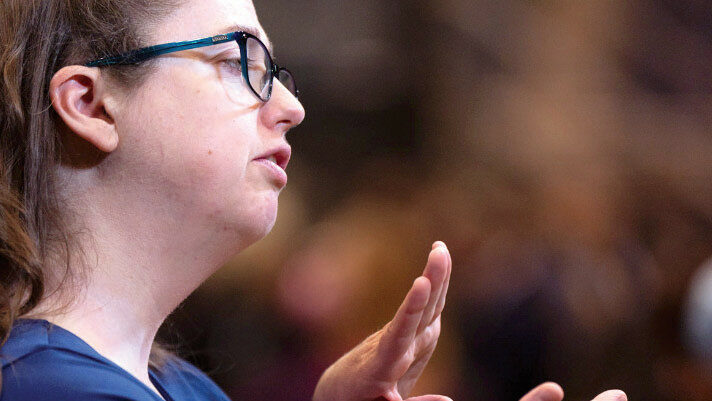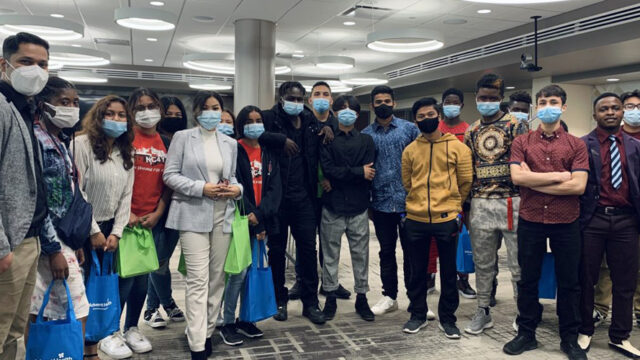For the first time in its history, Adventist Review Ministries offered daily commentaries and reports in six major world languages besides English during the GC Session. Here is one example from our French contributor.—Editors.

One of the characteristics of the church is inclusiveness. Jesus said, “Whoever comes to me I will never drive away” (John 6:37, NIV). The body of Christ is inclusive par excellence.
Only from this perspective can we, as the three angels of Revelation 14, truly preach the everlasting gospel to every nation, kindred, tongue, and people.
Such proclamation is the purpose of General Conference Sessions. When we read the last sentence of Revelation 14:6, we may think of this Session, of people of different origins, from a multitude of countries, dressed in their different ways, speaking their different languages. Looking at the delegates, we can see their distribution by linguistic affinity, by country, by other cultural traits. And we naturally identify more easily and closely with those with whom we communicate better.
There is a group of people in one area of the auditorium, however, that looks heterogeneous, different. What makes the group unique is the fact that it comprises a variety of backgrounds. But something special unites them: they “speak” with their hands. They are the Deaf.
These brothers and sisters “speak” a universal language, one that transcends barriers, borders, and cultures and uniquely unites those who speak it, regardless of where they come from, how they dress, or how old they are. I am referring to sign language.
I want to congratulate the organizers of the 61st Session of the General Conference for transforming this event into an opportunity to practice what we profess, to be an inclusive church.
As the son of a deaf mother, I grew up in a context that has taught me to observe hands and actions more than just words, to pay attention to details that others may not see or perceive. I am happy to see a worldwide church that allows sign language to be provided constantly, both on the floor and on the Internet. Some consider hearing impairment to be a handicap, but they may not realize that those who speak sign language cannot be silenced by surrounding noise, for it does not interfere with their communication. When I was a child, I could “talk” to my mother even if she was at a considerable distance, where the voice was not audible. Speaking with “gestures,” speaking by “doing” rather than by “saying,” is an advantage that the rest of us do not fully appreciate.
This helps us appreciate that Jesus did much more than He said. “Jesus did many other things as well. If every one of them were written down, I suppose that even the whole world would not have room for the books that would be written” (John 21:25, NIV). This inclusiveness toward the deaf community fills me with hope. I see a church that speaks with “actions” as well as “words.” If we are able to imbue this principle into the plans of the church, we will be a church that “speaks” by “doing,” and that language, as that of my childhood, will never be disrupted by the noises of this world. “Doing” brings heaven closer.








